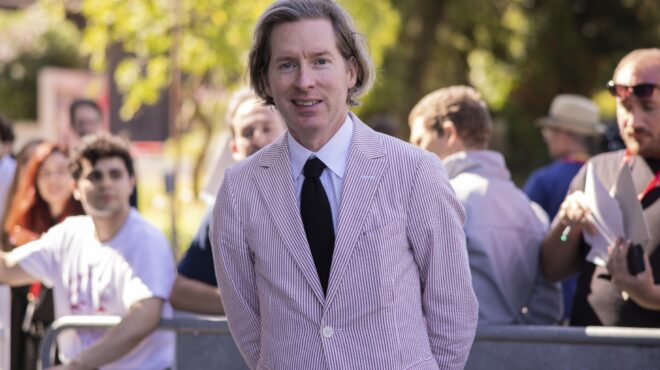Rome Champ's Unwavering Pursuit Of Excellence

Table of Contents
The Foundation of Discipline: Building a Champion's Mindset
The foundation of any successful pursuit lies in mental fortitude – the unshakeable belief in oneself and the unwavering discipline to pursue one's goals. This champion's mindset isn't innate; it's cultivated through conscious effort and consistent practice. Rome's legendary champions understood this implicitly.
- Daily Routines: Establishing consistent daily routines—from rigorous training schedules to mindful meditation—provided a framework for discipline and focus. This structure minimized distractions and maximized productivity.
- Goal Setting Strategies: Clear, well-defined goals, broken down into achievable milestones, provided direction and motivation. The Roman military, famed for its discipline, employed similar strategies, planning campaigns with meticulous detail.
- Positive Self-Talk Techniques: Replacing negative self-talk with positive affirmations fostered self-belief and resilience. Visualizing success helped to build confidence and mental toughness.
- Visualization Exercises: Mentally rehearsing successful outcomes prepped the mind for challenges, enhancing performance under pressure.
- Overcoming Setbacks: Every champion faces setbacks. The key lies in viewing failures not as defeats, but as valuable learning experiences, opportunities for growth and refinement of strategy.
Cultivating Mental Toughness through Adversity
The path to excellence is rarely smooth. Roman history is replete with examples of individuals overcoming seemingly insurmountable odds. Their resilience stemmed from a deep-seated understanding of adversity as an inevitable part of the journey.
- Strategies for Handling Pressure: Learning to manage pressure, whether it's the roar of the crowd or the weight of expectation, is crucial. Ancient Roman orators, for example, trained extensively to remain calm and composed during public speaking.
- Adapting to Changing Circumstances: Flexibility and adaptability were key to success. A champion must be able to adjust their approach depending on the circumstances. Roman military tactics, renowned for their flexibility, exemplified this principle.
- Learning from Mistakes: Analyzing failures and learning from them is paramount. Roman engineers, for instance, meticulously studied the causes of structural collapses to prevent future incidents.
- Maintaining Perspective During Difficult Times: Maintaining a balanced perspective, even in the face of adversity, is vital. The stoic philosophy, popular amongst Romans, emphasized this aspect of mental fortitude.
The Physical Prowess: Honing the Body and Mind
While mental fortitude is essential, physical prowess plays a crucial role in achieving peak performance. The Roman champions understood that a holistic approach, encompassing rigorous physical training, proper nutrition, and adequate recovery, was necessary to reach their full potential.
- Effective Training Regimens: A well-structured training program, incorporating strength training, endurance exercises, and flexibility work, is vital. Modern fitness regimens often mirror the intense training methods employed by Roman legionaries.
- Importance of Proper Nutrition: Fueling the body with nutritious food provides the energy and nutrients necessary for optimal performance. Roman diets, while different from modern ones, emphasized whole foods and mindful eating.
- Sleep and Recovery Techniques: Adequate sleep and recovery are essential for muscle repair and overall well-being. The Roman emphasis on rest and recuperation, evident in their societal structure, highlights the understanding of its significance.
- Injury Prevention Strategies: Prioritizing injury prevention through proper warm-up routines, stretching, and mindful training practices is crucial for long-term success.
Strategic Thinking: Planning for Victory
The greatest champions are not only physically and mentally strong, but also strategically astute. Meticulous planning and tactical thinking were integral to the success of Roman military campaigns and gladiatorial contests.
- Analyzing Strengths and Weaknesses: Understanding one's own strengths and weaknesses, as well as those of the competition, is crucial for developing a winning strategy. Roman military strategists were masters at this analysis.
- Developing Effective Game Plans: Creating a comprehensive game plan, anticipating potential challenges, and developing contingency plans is essential. This proactive approach mirrors the methodical planning of Roman engineers and architects.
- Adapting Strategies During Competition: The ability to adapt one's strategy based on the unfolding events is crucial. Roman gladiators were known for their ability to adjust their tactics in the heat of battle.
- Learning from Past Performances: Analyzing past performances, identifying areas for improvement, and refining one's approach is crucial for continuous growth.
The Unwavering Spirit: Perseverance and Commitment
The hallmark of a true champion is their unwavering spirit – their unwavering commitment and perseverance in the face of adversity. The pursuit of excellence is a marathon, not a sprint, requiring unwavering dedication over the long haul.
- Maintaining Focus on Long-Term Goals: Staying focused on long-term goals, despite setbacks and distractions, is vital. The construction of Roman aqueducts and roads exemplifies this unwavering commitment to long-term projects.
- Managing Motivation During Difficult Times: Maintaining motivation during challenging times requires self-discipline, resilience, and a deep-seated passion for one's goals. The unwavering spirit of Roman citizens facing hardships illustrates this resilience.
- Celebrating Small Wins: Acknowledging and celebrating small wins along the way helps to maintain momentum and prevent burnout. The Roman emphasis on public celebrations highlights the importance of recognizing accomplishments.
- Seeking Support and Mentorship: Surrounding oneself with a supportive network of mentors and peers can provide encouragement and guidance during difficult times.
Conclusion:
The unwavering pursuit of excellence, as embodied by the legendary Rome Champs, is a testament to the power of discipline, strategic thinking, and unwavering perseverance. It’s a journey that demands both mental and physical fortitude, requiring a holistic approach that encompasses consistent effort, strategic planning, and the ability to overcome setbacks. Embrace your inner Rome Champ and begin your unwavering pursuit of excellence today! Develop your winning strategy and start achieving your goals. [Link to relevant resource]

Featured Posts
-
 O Kosmos Toy Goyes Anterson Zontaneyei Se Londini Ekthesi
May 28, 2025
O Kosmos Toy Goyes Anterson Zontaneyei Se Londini Ekthesi
May 28, 2025 -
 Lifetime Achievement Award For Rod Stewart A Celebration Of His Career
May 28, 2025
Lifetime Achievement Award For Rod Stewart A Celebration Of His Career
May 28, 2025 -
 Pop Star Lorde Makes Surprise Visit To Themed Nightclub
May 28, 2025
Pop Star Lorde Makes Surprise Visit To Themed Nightclub
May 28, 2025 -
 Psvs Eredivisie Title Win A Veterans Day Celebration For Perisic And De Jong
May 28, 2025
Psvs Eredivisie Title Win A Veterans Day Celebration For Perisic And De Jong
May 28, 2025 -
 Kanye West And Bianca Censoris Spanish Dinner Relationship Update
May 28, 2025
Kanye West And Bianca Censoris Spanish Dinner Relationship Update
May 28, 2025
